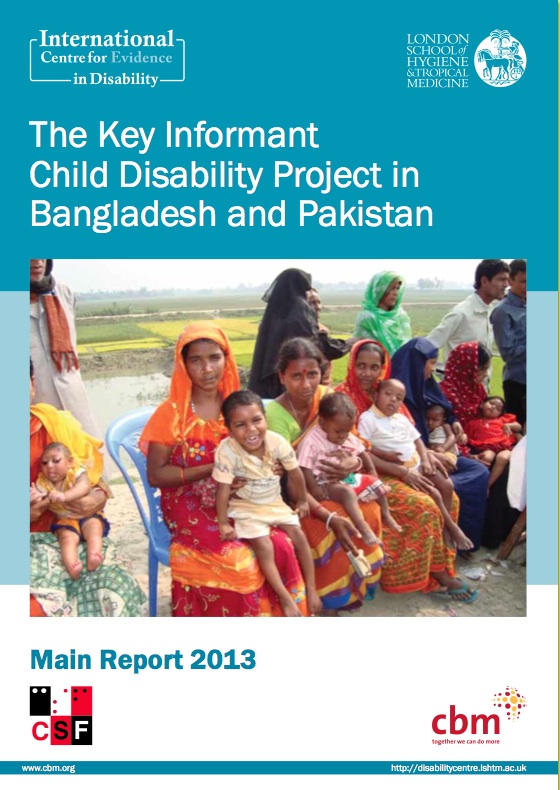The key informant child disability project in Bangladesh and Pakistan
 About
About
The Key Informant Method (KIM) has previously been tested by CBM, LSHTM and others, and found to be a valid method for the identification of children with severe visual impairment and blindness in Bangladesh, using community volunteers in the place of a door-to-door survey.
The current study set out to expand this and test whether voluntary, community-level Key Informants (KIs) could be trained to effectively identify children with moderate or severe physical impairments, sensory impairments (visual and hearing) or epilepsy in Bangladesh and Pakistan, and if so whether this process could be used to assess prevalence and plan appropriate referral services for children meeting these criteria.
Partners
CBM
International Centre for Evidence in Disability
London School of Hygiene and Tropical Medicine
Download
RESEARCH SUMMARY: The key informant child disability project in Bangladesh and Pakistan (PDF 156KB)
FULL REPORT: The key informant child disability project in Bangladesh and Pakistan (PDF 6.5MB)
